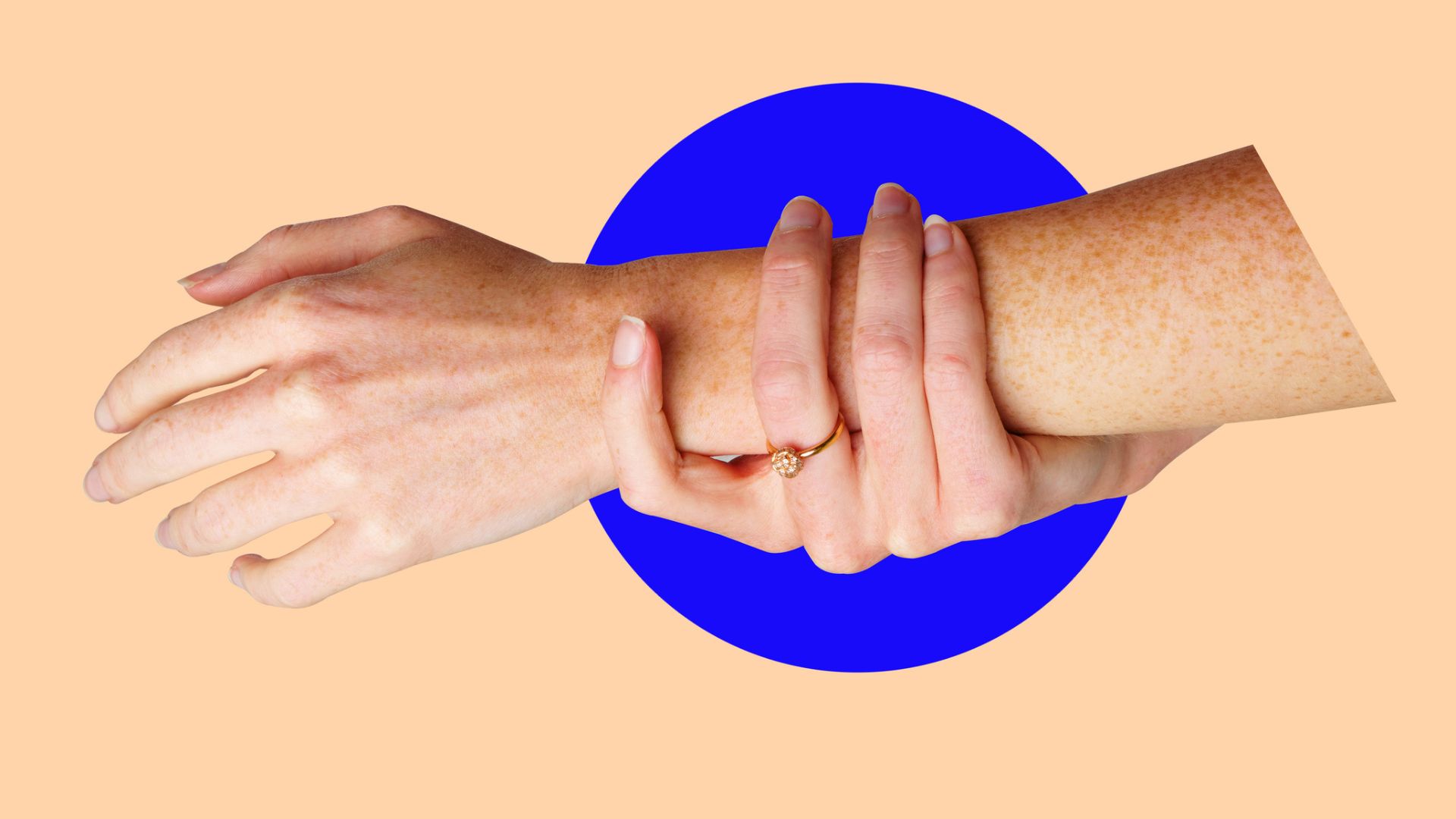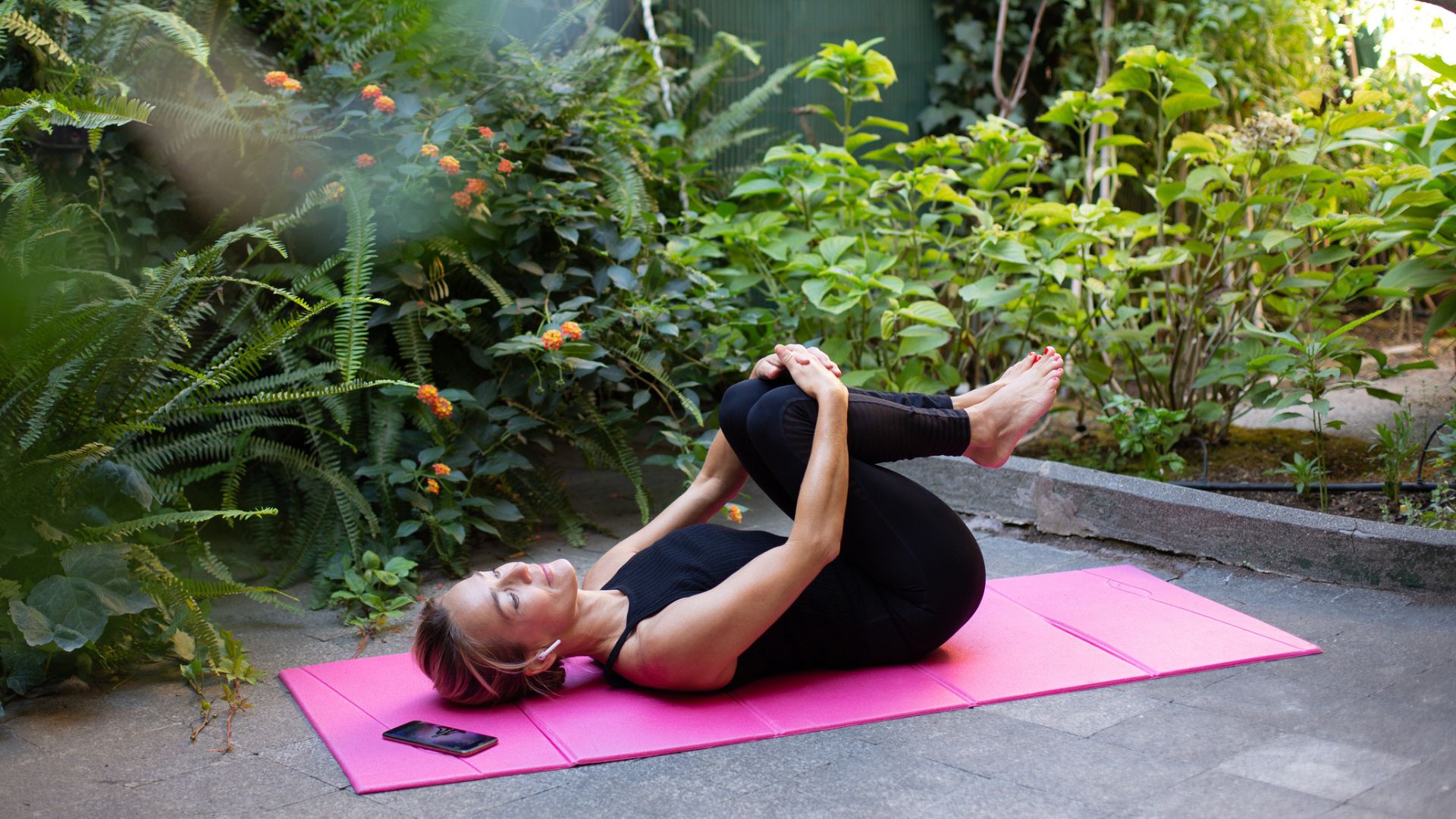Inflammation can affect how we age - here's what the experts want you to know about it
'Inflammageing' is the link between ageing and inflammation - and it may be the reason why it feels like you're ageing faster than you should be


We've all heard the adages of 'age is just a number' and 'you're only as old as you feel' - but what if it was actually true? Inflammageing is the word being used to describe almost 25 years of research into how inflammation affects us as we age.
Every individual is unique and experiences ageing differently, but some of us will find we are ageing physically and mentally faster than the numbers on our birthday cake would suggest. While chronological ageing is inevitable, some conditions can accelerate our physical and biological age - including inflammation caused by lifestyle habits, diet, medical conditions, and hormonal changes.
Inflammageing is the idea that constant low levels of inflammation can accelerate the ageing process and by reducing these levels of inflammation, we can feel better in our bodies. Here, woman&home speaks to the experts on all you need to know about the link between inflammation and ageing to help you make lifestyle choices to maintain - or even reverse - your biological age and, most importantly, enjoy the years to come.
What is inflammageing?
Inflammageing is the word used to describe the natural process of ageing when it's accompanied by constant inflammation. It happens when the immune system's natural inflammatory response doesn't settle down after illness (such as the flu) or injury.
While inflammation and ageing are often viewed as two separate processes, they have more in common than we think. It's a vicious circle, says Shabir Daya, an experienced pharmacist at Victoria Health. "Ageing results in the body's inability to effectively get rid of inflammatory compounds. However, constant inflammation also accelerates ageing."
When combined, they can have a significant impact on the body, mentally and physically. For example, research from several institutions, including the University of Bologna and the University of Zurich, suggests that inflammageing could be one reason why we're more likely to develop adverse health conditions as we get older - including diabetes, arthritis, heart disease, cancer, and Alzheimer's disease.

Shabir Daya MRPharmS, a seasoned pharmacist specialising in natural health products, boasts over forty years of expertise in his field. His remarkable journey has been defined by a genuine passion for holistic health and a commitment to providing authentic, high-quality products to his customers. His extensive knowledge and experience have made him a respected figure in the natural health community. He also the CEO at Victoria Health.
The constant inflammation causes “DNA damage, which leads to mutations and cellular dysfunction," explains Lara Hughes, a nutritionist and the founder of Wholistic Health By Lara. In other words, chronic inflammation causes cells to stop dividing, leading to a build-up of damaged cells in the body over the years. This build-up of cells continues to release inflammatory toxins that damage neighbouring cells and impair the immune system, leading to "cell exhaustion". The body’s ability to respond to infections and function at the optimum level is compromised, and consequently, the inflammatory state is heightened even further.
Sign up to our free daily email for the latest royal and entertainment news, interesting opinion, expert advice on styling and beauty trends, and no-nonsense guides to the health and wellness questions you want answered.
So, aside from age, what causes this constant, low-level inflammation?
- Stress: This is one of the biggest causes of inflammageing as it disrupts the body's hormonal systems, says Daya. "Stress hormones, such as cortisol, are inflammatory by nature which further compounds this problem," he says.
- Vitamin-deficient diets: Diets lacking vegetables but rich in red meat, sugar, and refined carbohydrates could contribute to inflamm-ageing as they "spark an inflammatory process called glycation, which hardens and weakens soft tissues within our arteries and veins," Daya says.
- Lifestyle habits: Environmental toxins - such as pollution, overexposure to the sun, smoking, drugs and alcohol - can also increase the risk of inflamm-ageing. A sedentary lifestyle and a lack of good sleep can also increase the risk.
- Genetics: Unfortunately, inflamm-ageing can also just be the result of genetics. Those who may be “genetically predisposed to higher levels of inflammation” and suffer “persistent inflammation” are more susceptible to inflamm-ageing, says Hughes.
Lara Hughes is a qualified naturopathic practitioner and clinical nutritionist. She also has a Master's degree in neuroscience with Specialisation in Neurodegeneration from King's College London.
What does inflammageing look like?
When we talk about inflammageing, we're talking about how the constant bodily inflammation affects the ageing process. As noted, this isn't always skin deep - this combination can manifest in the body and mind in various ways.
Naturally, there could be other causes of such issues so it's best to speak to your doctor immediately should you be experiencing these symptoms.
Skin and hair issues
Inflammageing causes the tissue to lose its structural integrity, which impacts the skin. "Topically, inflammation can cause skin issues like acne, eczema, and psoriasis," says Hughes. "You may also be more susceptible to infections and notice premature skin ageing, thinning hair, and hair loss."
Digestive disorders
Digestive disorders are another common issue linked to inflammageing. "Internally, inflammageing can damage organs and tissues, leading to conditions like inflammatory bowel disease (IBS)," says Hughes.
Chronic diseases
Inflammageing can be a catalyst for numerous chronic health conditions, emphasises Hughes. “Internally, it can damage organs and tissues, leading to conditions like arthritis, inflammatory bowel disease, and chronic fatigue. It can also contribute to the development of cardiovascular disease, increasing the risk of a stroke or heart attacks in women. Autoimmune disorders, high blood pressure, and insulin resistance, which can lead to higher blood sugar levels and an increased risk of type 2 diabetes," have also been linked to inflammageing, she says.
Inflammageing can also impact the blood and joints in the body, leading to conditions such as atherosclerosis (a disease that causes arteries to thicken and harden and, in turn, increases the risk of strokes and heart attacks) and arthritis, along with general pain and swelling.
Mood disorders
As inflammageing affects every part of the body, including the brain, it can lead to certain mood disorders.
Daya says it can impact a person's mental health and contribute to "anxiety, depression, cognitive decline and increasing of the stress hormones”, as well as memory loss.

Regular exercise, reducing stress, and maintaining a healthy diet can all help lower the risks associated with inflammageing.
This article is for general interest and is not intended to suggest a course of action that might be suitable for you. Always consult a licensed healthcare professional before making decisions concerning your health and wellbeing.
Who is most at risk for inflammageing?
Inflammageing is inevitable for most, says Daya, given that we will all age in years - if we're lucky. Research linked to the University of Birmingham found chronic inflammatory markers in 60% of adults over 65, and a separate study found those markers can increase up to four times in adults compared to younger people.
For women, the turning point is menopause. Daya says: "Generally 50s is when this shift occurs. Inflammageing commonly begins to take effect around middle age, coinciding with the perimenopausal transition and gradual changes in hormonal levels."
Post-menopausal women are also prone to more inflammatory markers than others, increasing the risk of inflammageing. "The hormonal changes and loss of oestrogen’s anti-inflammatory effects are significant," says Daya. "During perimenopause, whilst oestrogen is declining, it is still able to exert an anti-inflammatory effect so inflammatory symptoms may be limited. After menopause, the loss of oestrogen can lead to more chronic inflammation, manifesting in conditions like osteoporosis, cardiovascular disease, and increased cognitive decline."
But that’s not to say younger adults, or males, avoid inflammageing, it is merely the causes of inflammageing that differ. "Inflammageing can occur in younger adults, especially those with an unhealthy diet and those who don't exercise regularly, have poor sleep and high-stress levels, those who are obese, and individuals with multiple, badly-managed injuries," says Hughes. "But for menopausal women, inflammageing often relates to hormonal changes."
Is inflammageing reversible?
The good news is inflammageing can be potentially reversed to enjoy a longer, healthier life, Hughes says. There are tests to analyse elevated markers of inflammageing and detect oxidative stress, a high white blood cell count, and the presence of damaged cells. But, ultimately, regular exercise, a balanced diet, good sleep, and lower cortisol levels are key to reducing inflammation.
Exercise releases endorphins which "control the repair processes within the body and help keep inflammation at bay", Shabir says. Plus, it's one of the ways to sleep better and enjoy a restful night's sleep, which is crucial to combat inflammation and slow the inflamm-ageing process.
150 minutes of aerobic and resistance training per week is the standard recommended by the NHS. Hughes says this is also a good amount to “reduce systemic inflammation, enhance immune function and promote longevity.”
Anti-inflammatory foods - such as whole grains, fruit and vegetables, ingredients high in omega-3, spices such as turmeric, ginger and garlic, antioxidant-rich berries, leafy greens, nuts and seeds - and plenty of water are the way forward to reduce the symptoms of inflammageing. It's also a good idea to avoid smoking and drinking too much alcohol and to add some supplements to your diet, such as vitamin D3, curcumin, omega-3, and amino acids. However, always speak to your doctor before adding new supplements to your routine.
Prioritising good sleep via better sleep hygiene “supports the body’s anti-inflammatory response”, says Hughes, and reducing cortisol levels via stress management techniques like journaling, meditation, and yoga can help calm the mind and body.
Maisie Bovingdon is a freelance journalist with a decade of experience writing everything from beauty, fashion, health and wellness to travel and e-commerce for digital publications including Hello!, Fabulous, Luxury London, Marie Claire, Women's Health, and Woman&Home, among other titles. She has covered almost everything, from royal weddings, and celebrity deaths, to Amazon Prime Day, and has trialled various beauty and wellness trends, from sleep hacks, and breathwork to home health tests.
